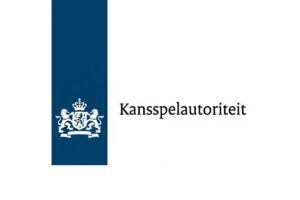Impact of Sweden’s Gambling Regulations on the Industry

This article discusses the effects of Sweden’s gambling regulations on online casinos. Read to learn about the market dynamics and consumer protection.
The Effect of Sweden’s Gambling Regulations on Domestic and Foreign Casinos: Market Dynamics and Consumer Impact
Before 2019, the Swedish online gambling market was unregulated just like many other parts of the world. The only legal online gambling company was Svenska Spel, a state-owned organization that offered casino games, sports betting, and other forms of gambling.
However, iGaming sites hosted in different locations operated freely in the country, entertaining residents with unrestricted gambling services. Most of the online gambling activities by residents were done on these offshore sites. It was so much that the Svenska Spel effectively lost the monopoly it was supposed to hold.
Discussions and multiple investigations about the need for solid regulations for gambling by the government spanned over a decade. It wasn’t until January 1, 2019, that everything changed after new regulations came into effect. In this article, we will discuss the new regulations and their effects on both domestic and foreign casinos.
Regulatory Framework
The Swedish Gambling Act 2019 brought in new policies and strict rules for online gambling, allowing the government to fully regulate the industry. Contrary to how it was before, no company or government institution holds a monopoly on the market. Instead, various companies can host online gambling services in the country as long as they adhere to the regulations.
The first and most important rule is that every casino site that wishes to operate in the country must be licensed by Spelinspektionen (the Swedish Gambling Authority). Players are also encouraged to find and play at only these authorized platforms. Casino review websites play a crucial role in this situation. These sites, which list only licensed Swedish casinos like online-casinos.com, help guide players toward operators that comply with local regulations.
After acquiring licenses, the Act requires operators to follow many other regulations. Many of these policies were inspired by other gambling rules in countries such as the UK and Denmark. These regulations guide the operators’ activities regarding many areas, including bonus offerings, responsible gambling, games, credit payments, etc. The Spelinspektionen has the responsibility of auditing licensed casinos and ensuring they adhere to the policies.
Market Dynamics
The introduction of the Gambling Act rendered the operations of many offshore casinos in Sweden illegal. Operators with a large customer base in the country needed to acquire a license to continue their services legitimately. The Swedish Gambling Authority ensured that players can no longer access the services of some of these sites by blocking them.
Offshore gambling sites organized by reputable global brands also blocked customers in the country from accessing their sites. The companies interested in continuing their services to Swedes secured the Spelinspektionen license.
However, only the biggest foreign casino operators and game providers remained. Smaller casinos, which only used licenses from jurisdictions like Curacao, could no longer continue. While this reduced the number of legal casino options available to Swedes, it also strengthened the industry. The existing legitimate casinos can offer localized iGaming services to consumers.
Before the new policies, casino operators in the country were not allowed to offer their services. The new market gave rise to domestic casino operators who now have the chance to cover the market left by banned offshore companies.
Consumer Protection
One of the major reasons for local gambling regulations has always been increased protection for consumers. The Swedish Gambling Authority, like other reputable regulators, prioritizes the safety and well-being of players in their jurisdiction.
Firstly, only persons aged 18 and above are allowed to access online gambling services in Sweden. Every license holder must protect its players from excessive betting and monitor their activities to help users reduce gambling time if necessary.
Furthermore, license holders are provided with a strict responsible gambling guide. They must offer players tools to implement gambling limits and observe social and health considerations in their operations. The Gambling Authority provides a guide on Spelinspektionen.se to help operators identify signs of problem gambling and know what measures are expected of them.
The Authority also launched Spelpaus, its self-exclusion scheme on the same day the regulated market was opened. This scheme allows consumers to block access to all gambling websites licensed in Sweden. They can suspend their accounts for one to six months, or indefinitely.
Economic Impact
Since its regulation, the iGaming industry in Sweden has become an additional source of revenue for the government. To secure an online gaming or betting license, the application fee is SEK 400,000 while a license for both costs SEK 700,000. The tax on gross gaming revenue has also been increased from 18% to 22% in July 2024.
According to Spelinspektionen, gambling revenue for 2024 Q1 was €572 million, a 1% growth compared to 2023 Q2. Online casino and sports betting platforms contributed 64% of this total revenue, which translates to €366 million. This marks a 2% growth from last year, proof that the sector is improving steadily.
Legal and Compliance Issues
The Swedish Gambling Authority is strict in its supervision of casinos and betting sites registered in its jurisdictions. It requires all operators to be resident in a country within the European Economic Area or have a physical agent residing in Sweden. Furthermore, all license holders must have their servers located in Sweden or grant the Authority satisfactory remote access to their systems. These ensure the authority can act swiftly when there are issues with regulatory compliance.
Areas such as anti-money laundering, responsible gambling, and data protection are where operators mostly default. In cases of violation, the Authority may issue a warning or revoke the licenses/permits if the offense is serious. Violators are usually required to pay fines and rectify the issues before they’re allowed to continue operating. Recently, the regulator fined Kanon Gaming €623,000 for failing to comply with its duty of care.
Looking Ahead: What Does the Future Hold?
While the Swedish iGaming market is currently thriving, it’s not one of the best in the world yet. For many reasons, including access to more games and bonuses, many consumers still prefer to play at unlicensed offshore sites. The Gambling Authority must provide an ecosystem where its license holders can offer even better services to gamblers.
Nevertheless, one of the core objectives of Spelinspektionen is to evolve further and ensure its regulations remain pertinent and valuable. Hence, we can expect the industry to get better with consistent regulatory shifts and innovations. Increased technological solutions, such as AI-based customer services and effective player identification would improve user satisfaction and safety at Swedish licensed casinos.











